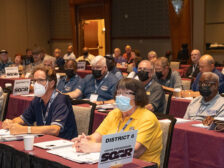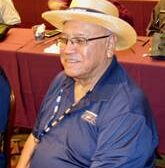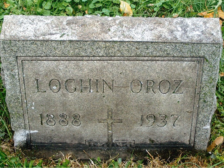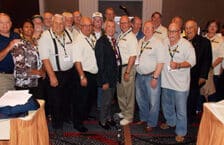SOAR Remembrance of USW President Leo W. Gerard
USW Civil and Human Rights Guidelines
Foreword
The Civil Rights Guidelines provides guidance for union members and leaders to help eradicate discrimination in the workplace. It is designed as a pocket guide for Civil Rights Committees, Local Union Officers and members to offer constructive, innovative and working alternatives in combating injustices, whether they exist in the workplace or in the community.
It answers the most frequently asked questions about the organization and function of a Civil Rights Committee in a local union, and the procedures to be followed in civil rights matters in the workplace. It clearly defines the role of the Civil Rights Committee as it relates to the local union, its officers and the grievance committee. Likewise, it explains how a member with a civil rights problem or grievance should proceed in accordance with the policy of our Union.
The answers provided should satisfy the basic questions in the ever-expanding area of union concern as it relates to a member’s civil rights under the labor agreement or the existing laws. It does not, however, attempt to include all the questions and answers that may arise in so vast a field. As other questions emerge, your Local Union Civil Rights Committee, District Director, International Committee on Civil Rights or the Civil Rights Department are available to provide further information.
Questions and Answers About Civil Rights Committees contracts provide for the establishment of a Civil Rights Committee with equal representation from the local union and the company. These contractual committees are referred to as the Joint Committee on Civil Rights.
- Does each United Steelworkers local union have a Civil Rights Committee?
Each local union is required by Article VII, Section 12, of the Constitution of the International Union to establish a Civil Rights Committee. - How many members serve on a Local Union Civil Rights Committee?
The size varies according to the local union. The Civil Rights Department recommends a committee of at least five (5). - How are the members of the Local Union Civil Rights Committee selected?
The president of the local union appoints the members of this committee in the same manner in which he/she designates the members of other committees. The Civil Rights Department recommends that the president of the local union and the chairperson of the grievance committee serve on the Civil Rights Committee. - What are the duties of the Local Union Civil Rights Committee?
The Local Union Civil Rights Committee should be vigilant in the prevention of injustices within the local union and in the community.The Civil Rights Committee should maintain continuous communication with the Grievance Committee.It should maintain close liaison with the district director, the staff representative and the district civil rights coordinator to keep them fully informed of the committee's activities.It should cooperate with the Education, Community Services, Political Action Committee and other committees within the local union.It should meet at least once a month and prepare monthly reports of its work and activities for submission to the local union officers and membership.The Committee should concern itself with allegations of discrimination in hiring practices.It should familiarize itself with time limits and procedures for filing civil rights complaints with the city, state, and federal agencies, so as to render assistance to those members who are compelled to invoke the various city, state, and federal laws in order to obtain their rights.It must be clearly understood that the Civil Rights Committee shall not infringe on the duties and responsibilities of the Grievance Committee. - Does each United Steelworkers local union have a contractually recognized Civil Rights Committee?
Only those local unions whose contracts provide for a Joint Committee on Civil Rights have contractually recognized Civil Rights Committees. - What is a Joint Committee on Civil Rights?
Many local unions - How are the members of the Joint Committee on Civil Rights selected?
The company designates the company representatives and sends their names to the local union. The union members of the committee are to be appointed by the local union president in the same manner in which he/she designates the members of other committees. Their names are then submitted to the company. Generally contracts provide that the union representation on the committee will be five (5) members, two (2) of whom will be the local union president and the chairperson of the Grievance Committee. It is desirable that the other union representatives be from the Local Union Civil Rights Committee. - What is the purpose of the Joint Committee on Civil Rights?
It is the purpose of the Joint Committee on Civil Rights to improve relations in the plant and community among racial, religious, ethnic and diverse groups; to provide for the protection of civil rights of all employees and further equal employment opportunity; and to work toward achieving the objectives of the Civil Rights Act of 1964. - How often does the Joint Committee meet?
In most instances, the committee must meet no less than once each month. Before each meeting the union members of the Joint Committee should meet with the local union officers and the Local Union Civil Rights Committee to discuss what matters will be coming before the Joint Committee. - Are the contractual provisions pertaining to civil rights the same with all companies that have agreed to a civil rights clause?
No, some of the contractual provisions are different as to procedures in processing complaints. - Can the contractual Civil Rights Committee file or process grievances concerning Civil Rights?
The Joint Committee reviews civil rights matters but does not file or process grievances. Under most agreements that provide for Joint Committees, the chairperson of the grievance committee, who is required to be a member of the Joint Committee on Civil Rights, may file a grievance pertaining to civil rights.The International Union, through collective bargaining, has succeeded in expanding the role of the Joint Civil Rights Committee in some local unions, whereby, the Joint Committee shall review and attempt to resolve complaints involving civil rights prior to the complaint being processed as a grievance where there is a violation of the collective bargaining agreement.Through such provisions, in the event that a civil rights complaint involving a claim of discrimination reviewed by the Joint Committee is not resolved by that committee, it may be processed as a grievance. Such grievance may be filed by the chair of the grievance committee in an advanced step of the grievance procedure. It is not intended that the Joint Committee shall displace the normal operation of the grievance procedure.Some agreements contain the following or modified provision:
The Joint Committee shall have no jurisdiction over the initiating, filing, or processing of grievances. If a civil rights complaint is referred to the joint committee, the time limit for filing a grievance in an advanced step will commence the day following the date of the initial joint committee meeting in which the civil rights complaint was discussed, unless the company and union members of the joint committee mutually agree to an extension; provided, however, the civil rights complaint was recorded with the joint committee within 30 calendar days after the date on which the facts or events upon which the civil rights complaint is based shall have existed or reasonably should have become known to the employee or employees affected thereby. - To whom shall a member make a complaint alleging a Civil Rights violation?
Complaints shall be made to the chairperson or any member of the Local Union Civil Rights Committee. The complaint shall be made on Civil Rights Complaint Form 520, which provides for copies to be sent to the district director, district civil rights coordinator, the local union recording secretary, and the International Civil Rights Department. The complainant shall retain a copy of the complaint. - What procedure shall the Local Union Civil Rights Committee follow after receiving a complaint?
The Local Union Civil Rights Committee shall determine whether the complaint alleges a violation of a provision of the collective bargaining agreement.If the complaint alleges violation of a contractual provision, it shall be referred to the local union grievance committee and processed under the applicable grievance procedure. The chairperson of the Local Union Civil Rights Committee shall be notified by the grievance committee of the results in each of the steps of the grievance procedure.If the Local Union Civil Rights Committee determines that the complaint does not allege a violation of a provision of the collective bargaining agreement, but does have merit, it shall handle the complaint. - What can an individual member or the Local Union Civil Rights Committee do if they believe that a complaint, whether or not it alleges a violation of a provision of the collective bargaining agreement, is not being processed properly?
An appeal can be taken to the district director’s designated representative who may be the staff representative or the district civil rights coordinator. Failing satisfactory resolution, the matter may be referred to the district director for further investigation. A district director shall, if need be, refer the matter to the International Civil Rights Department for further investigation and appropriate further action.An individual, who believes his/her complaint has not been resolved satisfactorily, may submit his/her case to the chairperson of the International Civil Rights Committee for review. - What other duties fall within the province of the Joint Committee on Civil Rights?
The Committee should be kept informed of all federal, state and municipal civil rights laws and agencies. The Committee should study and work for the implementation of the company’s affirmative action program concerning employment, transfers, promotions, job training, apprenticeship, testing and other equal employment practices.
Federal government agencies charged with the responsibility of interpreting, enforcing, and monitoring compliance with employment anti-discrimination laws.
- The U. S. Equal Employment Opportunity Commission (EEOC) administers Title VII of the Civil Rights Act of 1964. This law prohibits employment discrimination by employers, labor unions, and employment agencies because of race, color, religion, sex, or national origin;The Civil Rights Act of 1991 made major changes in the federal laws against employment discrimination enforced by EEOC. Enacted in part to reverse several Supreme Court decisions that limited the rights of persons protected by these laws, the Act also provides additional protections. The Act authorizes compensatory and punitive damages in cases of intentional discrimination, and provides for obtaining attorneys’ fees and the possibility of jury trials.
- The Office of Federal Contract Compliance Programs (OFCCP), of the U.S. Department of Labor administers the provisions of Executive Order 11246, which prohibits discrimination in employment by government contractors on the basis of race, color, sex, religion, and national origin, handicap or Vietnam Era Veterans.
- Effective July 1, 1979, the Equal Employment Opportunity Commission was given responsibility for enforcement of Equal Pay Act of 1963 and the Age Discrimination in Employment Act of 1967 by the President's Reorganization Plan of 1978 providing for transfer of enforcement authority from the U.S. Department of Labor.The Equal Pay Act of 1963 (EPA), protects men and women who perform substantially equal work in the same establishment from sex-based wage discrimination.The Age Discrimination in Employment Act of 1967 (ADEA), prohibits age discrimination by employers, employment agencies, and labor unions of individuals who are 40 years of age or older.
- The U. S. Commission on Civil Rights is an independent, bi-partisan, fact-finding agency of the Executive Branch, first established under the Civil Rights Act of 1957. It investigates complaints of voting rights and equal employment opportunity violations, appraise federal laws having an impact on protected groups, serves as clearinghouse for anti-discrimination information, and submits findings and reports to the President and Congress.
- The U. S. Department of Labor (DOL), is charged with preparing the American workforce for new and better jobs and ensuring the adequacy’s workplaces. It is responsible for the administration and enforcement of over 180 federal statutes including those covering workers’ wages, health and safety, employment and pension rights, equal employment opportunity, job training, unemployment insurance and workers’ compensation programs, and collective bargaining. DOL also collects, analyzes and publishes labor and economic statistics.
- The U. S. National Labor Relations Board (NLRB), is an independent federal agency created by Congress in 1935 to administer the National Labor Relations Act, the primary law governing relations between unions and employers in the private sector. The NLRB investigates and remedies unfair labor practices by employers and unions.
- The U. S. Department of Justice (DOJ), Civil Rights Division was established in 1957 for the purpose of enforcing federal anti-discrimination statutes. The mission of the Division is to educate the public about civil rights laws to enhance and promote enforcement activities so that all Americans can be treated with dignity and respect.






























































